Planet’s Biggest Poll is Here Again; India, Let Us All Vote & Vote Right
.jpg)

March 21, 2024
By Rahul Nandan, Co-founder, AntardhwaniThe stage is all set for the world’s biggest democratic exercise — India’s general elections 2024. Dates have been announced, political gimmicking is picking up pace, candidates are shifting ideologies and parties like never before, and the voter has suddenly become very important person (VIP) once again.
But before you decide to vote or skip (as many prefer in India’s educated metropolises), do become aware enough and think through thoroughly about the implications of your decision that could very well impact your future as well as the nation’s. It is time to be informed and cautious.
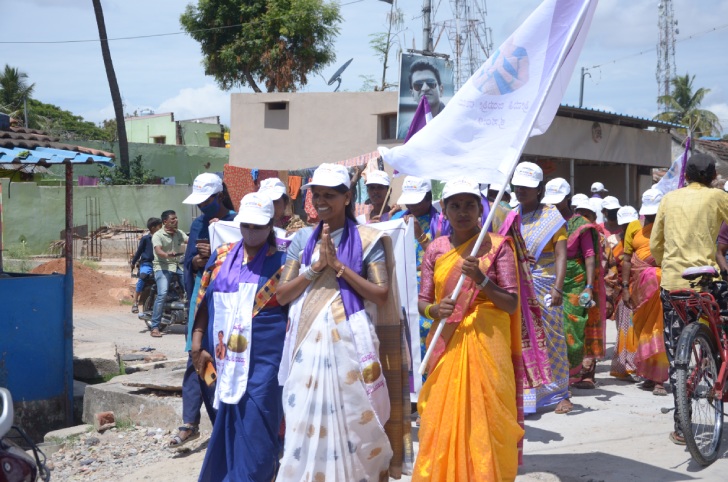 Antardhwani spread the message of good politics and political empowerment of women by floating and backing an independent woman candidate from Gundlupet in the 2023 Karnataka assembly elections. We need more candidates with clear conscience, integrity and focus on service of people and nation building.It was an eye opener, particularly about the multitude of factors that are at play in ground level politics.
Antardhwani spread the message of good politics and political empowerment of women by floating and backing an independent woman candidate from Gundlupet in the 2023 Karnataka assembly elections. We need more candidates with clear conscience, integrity and focus on service of people and nation building.It was an eye opener, particularly about the multitude of factors that are at play in ground level politics.
Let us examine how humongous is the expense on conducting general elections in India to bring some perspective. The Union government spent around Rs 3,870 crore on the Lok Sabha polls in 2014. A Centre for Media Studies report estimated the total expenditure incurred on the 2019 general elections around Rs 60,000 crore — including money spent by candidates, parties, ECI/government, media/sponsors, and others/industry — the most expensive ever, anywhere. In the last winter session of Parliament, the government sought an additional expense of Rs 3,147.92 crore for the upcoming polls, taking the proposed poll expenditure (by the government) to over Rs 5,000 crore.
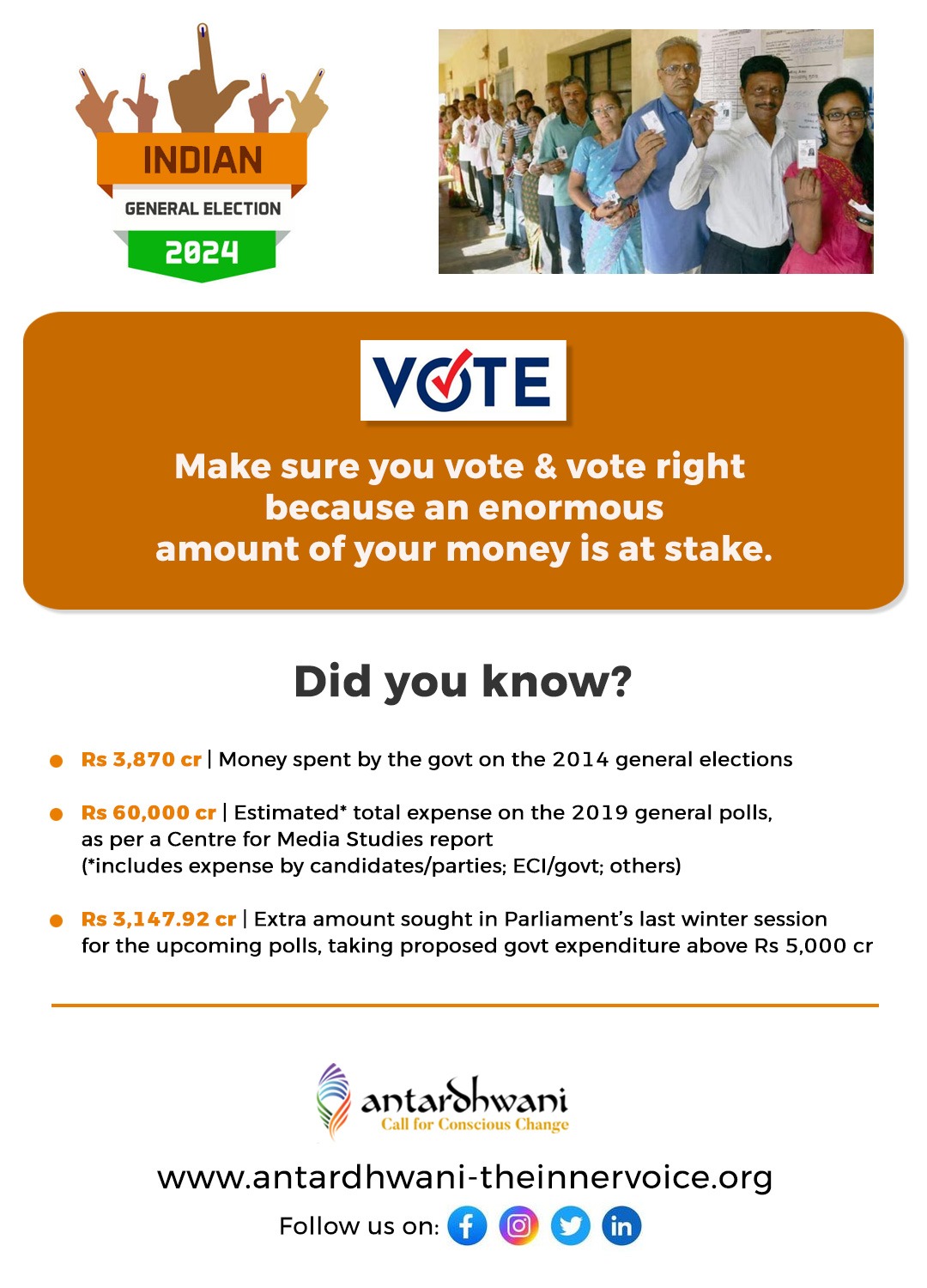
Whose money is this? Yours — the people of India. Are you ever complacent when you spend your money? Never, even if it is small. Then how can you be when such an enormous amount of your money is at stake. It is time for you to take an informed and wise decision this election and best utilize this once in a 5-year opportunity. Let us use our power to maximize social and economic impact, to change our lives and of those millions who often do not have a voice. Let us all listen to our consciousness and vote right, and shun the politics that sees voters as scapegoats.
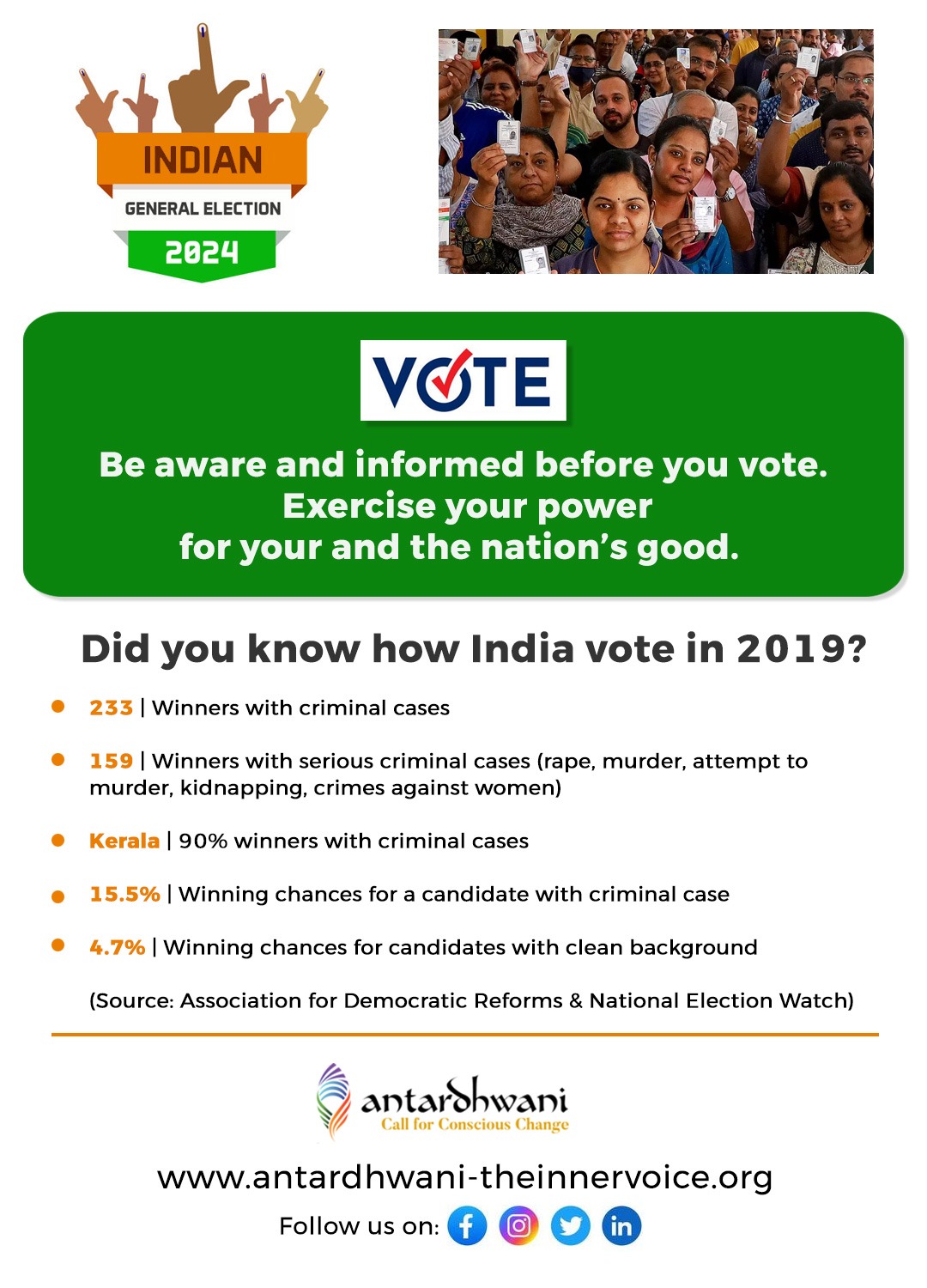
If you are already thinking, then it is time to probe how exactly you vote. Do you really care for your good? Let us now check out how Bharat voted in its last Lok Sabha elections. According to an analysis of the 2019 general polls by the National Election Watch and the Association of Democratic Reforms, 233 of the 539 winners had criminal cases and 159 had serious criminal cases (rape, murder, attempt to murder, kidnapping, crimes against women). Kerala had the highest number of winners with criminal cases (90%), 82% winners in Bihar and 36% in Karnataka. It is interestingly appalling that winning chances for a candidate with criminal case is 15.5% while it is just 4.7% for candidates with clean background.
An analysis by Antardhwani indicates that voters tend to support criminal candidates in constituencies marked by: 1) social divisions based on caste, creed, and religion and 2) government inefficiencies in delivering fair and transparent citizen services, dispensing justice, or providing adequate security.
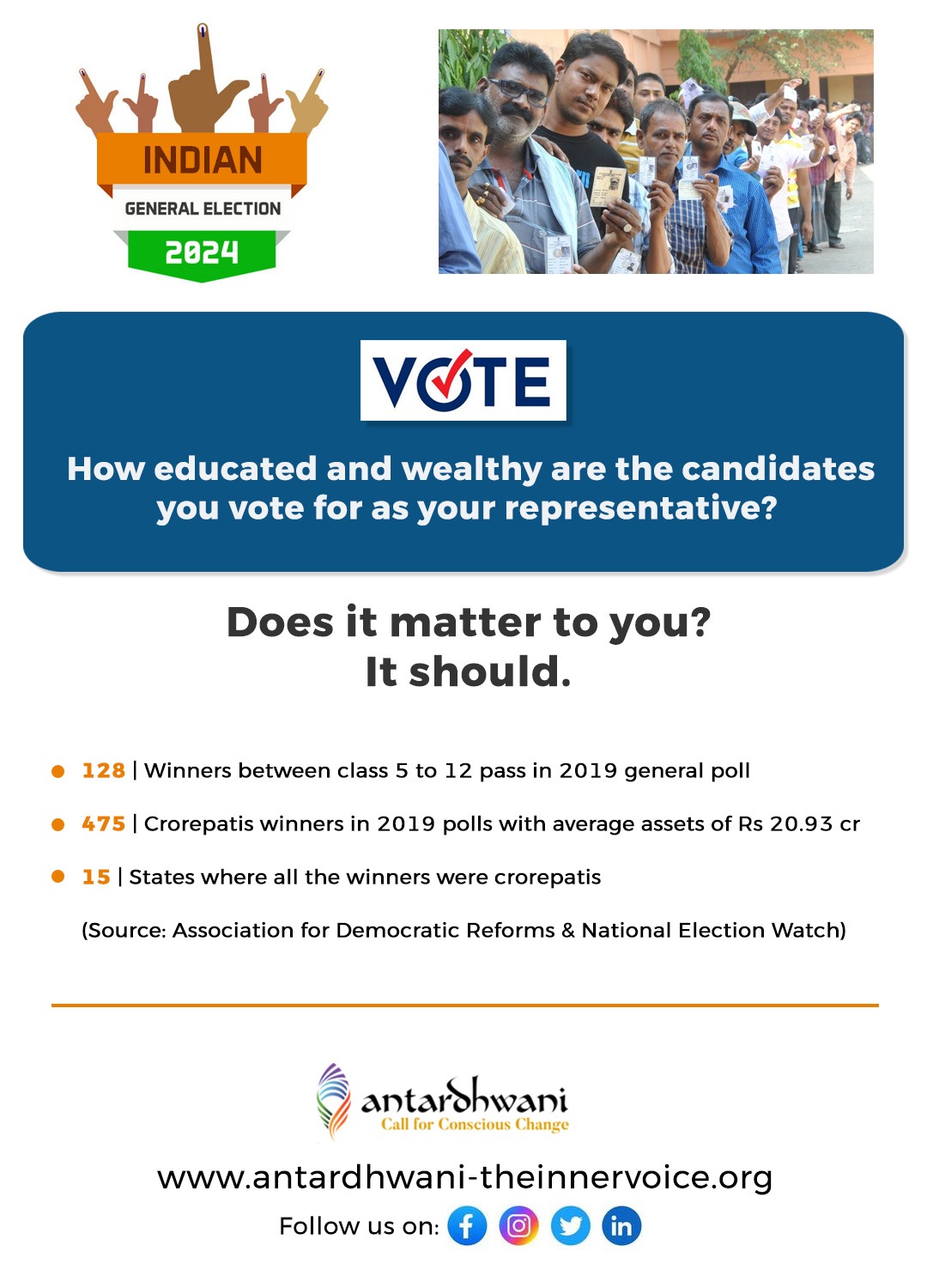
In some other key denominators (that define elections in India), 128 winners in 2019 polls (current sitting MPs) are between class 5 to 12 pass. Now, you must know how rich are your MPs? The representatives of India’s poor masses are amassing wealth like never before and staggering number of them are crorepatis. In 2019 LS polls, at least 475 winners (88%) were crorepatis with average assets of Rs 20.93 crore. In at least 15 states, all the winners were crorepatis. And, to top it all, there is a high 21% chance of a crorepati candidate winning compared to just 1% for those having assets below Rs 1 crore. While an overwhelming majority struggle to make the ends meet year after year, their representatives continue to grow richer and richer.
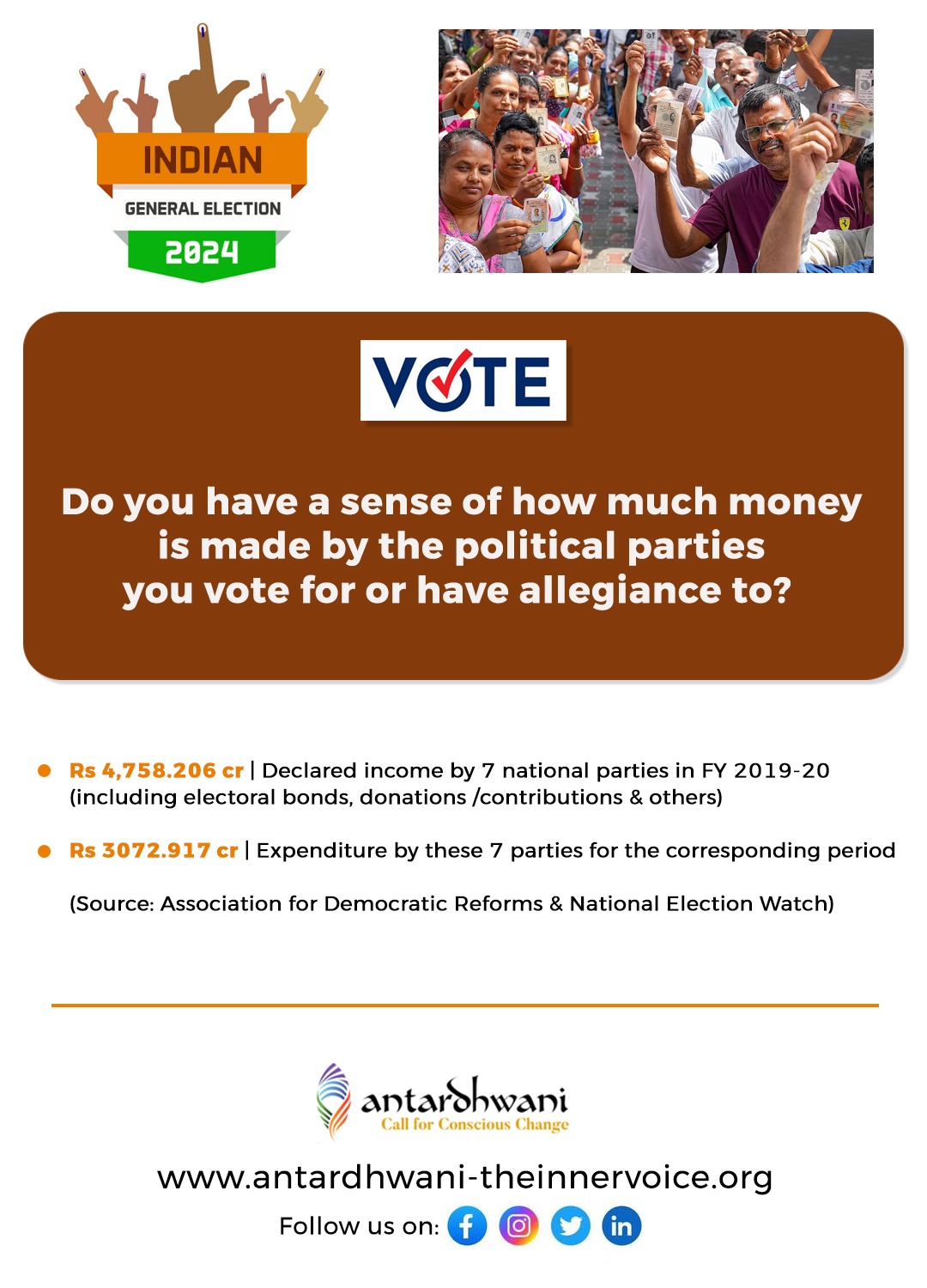
If you are now astounded enough, time is right to take you through the kind of money made by the parties you vote for or have allegiance to. The declared income by the seven national parties in financial year 2019-20 stood at a staggering Rs 4,758.206 crore including those from electoral bonds, donations/contributions, and other sources. Their expenditure for the corresponding period was Rs 3072.917 crore.
The Supreme Court of India last month scrapped the electoral bond scheme that allowed individuals and companies to donate money to political parties anonymously and without any limits.
It is important to reflect on why do we vote the way we do? Do we really care for development and policies when nation goes to elections every five years? The trends over the past several polls seem to reveal much about what we have in mind when go out to vote. Caste, creed, religion, doles, and freebies seem to sway our invaluable votes rather than social and economic welfare, better access to health and education or efficient public services.
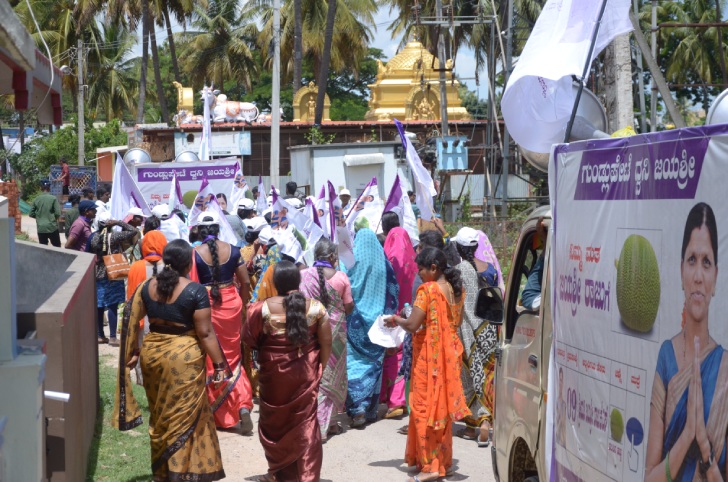
We are indifferent to performance and accountability, and seem to be satisfied with momentary personal gains. For us, individual benefits precede community benefits. Why is that we do not have a list of demands for candidates when they come to seek votes before polls and make them accountable for each of their promises.
While changing the way people vote is a formidable challenge in India where 70% of the electorate live in rural areas, it is imperative to make them aware about voting the right way to bring any political and democratic reform in real sense. Persuasive and persistent effort is required to help them internalize the fact that votes must be necessarily cast based on key citizen issues and for genuine candidates with clean record and clear conscience.
We would love to hear from you. Send us your thoughts and views to: info@antardhwani-theinnervoice.org You can also reach out to us on